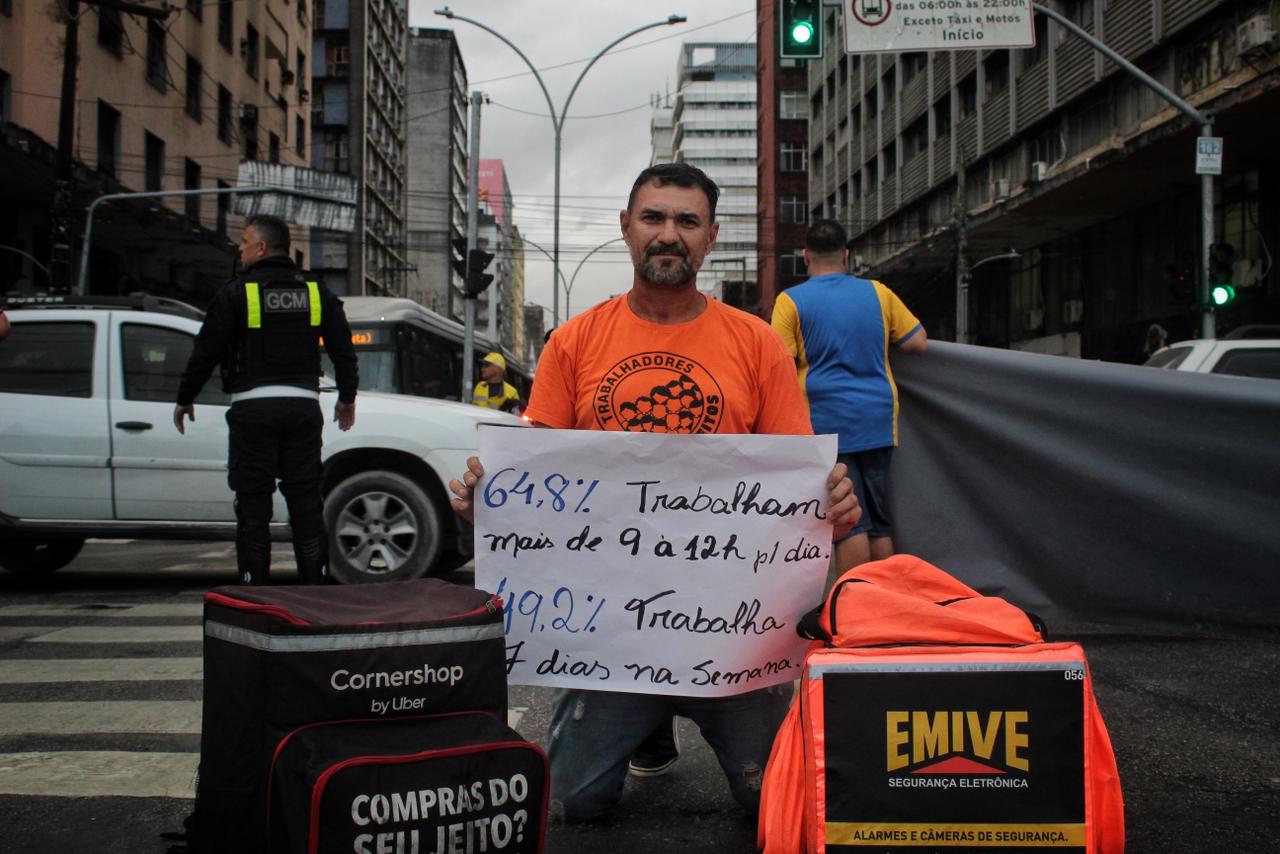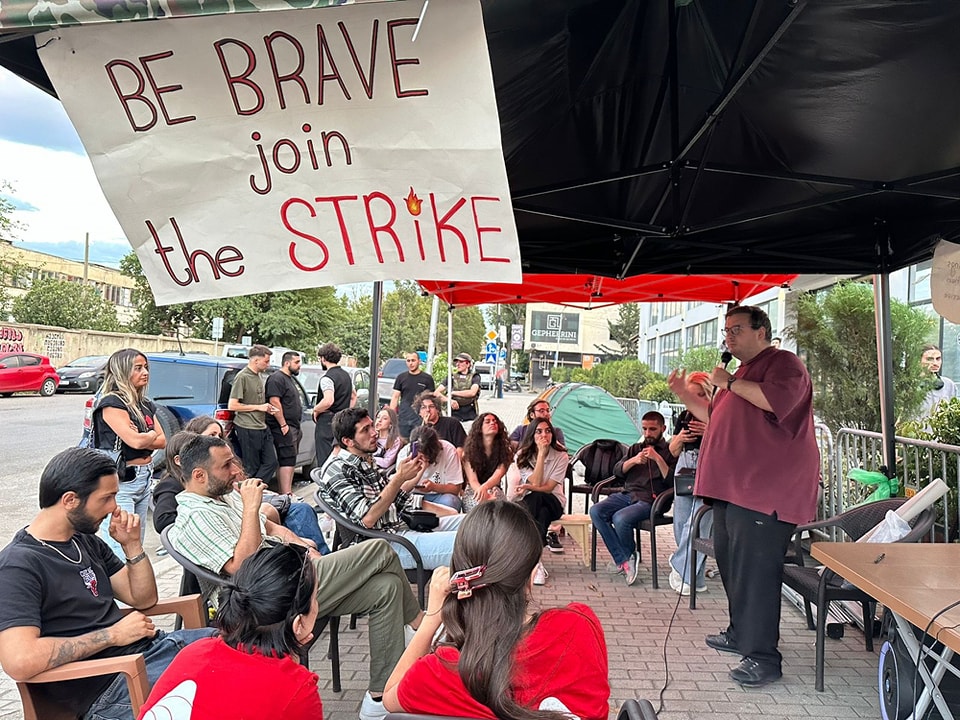Delivery drivers at iFood in Brazil say they face exhausting workdays, low pay, lack of adequate company support and poor health conditions. In fact, wages that do not cover the cost of living -–or even do not meet the local minimum wage law—force drivers to work...
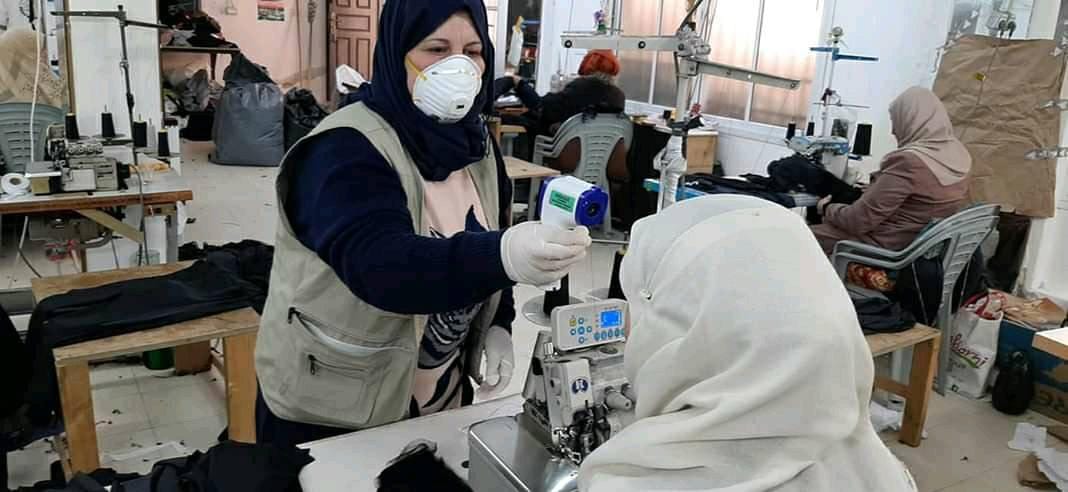
During the COVID-19 pandemic, members of the Palestinian General Federation of Trade Unions, a Solidarity Center partner, tested workers for fever. Credit: PGFTU
Each year, more than 2 million workers die on the job—more than 6,000 a day worldwide. Hundreds of millions more workers a year suffer from non-fatal job-related accidents and illnesses.
The global coronavirus pandemic highlighted and exacerbated the vast inequities facing working people as many risked exposure to the virus without protective safety equipment, tending to sick patients, staffing grocery stores and driving public transport.
In partnership with the Solidarity Center, unions negotiated stepped-up protections and improved wages for workers who risked their lives on the front lines of the crisis, and supported unions as they worked with governments and employers to ensure those furloughed or laid off during the pandemic received wages and social protections such as access to food distribution and unemployment compensation.
Around the world, the Solidarity Center supports networks of unions that are pushing for workplace health and safety measures, such as in Serbia, where unions created a national network of trade union activists to improve workplace safety and health monitoring, and bargain collectively with employers to expand such protections for all workers, regardless of whether they are union members.
On April 28, workers and worker rights activists like the Solidarity Center observe World Day for Safety and Health at Work, an annual day of remembrance for workers who died or were injured on the job and a day to renew the struggle for decent work—family-supporting wages, sick leave and other benefits and safe and healthy working conditions.
Republic of Georgia: Online Gaming Workers’ Strike Met with Threats
Nearly a month into their strike for better pay and safer working conditions, workers at online gaming company Evolution Georgia say they face intimidation and physical violence as the company attempts to break their strike rather than continue contract negotiations....
NIGERIA: UNIONS ALLY WITH GOVERNMENT, CIVIL SOCIETY ON HEAT STRESS
Built on research commissioned by the Solidarity Center, the Nigeria Labor Congress (NLC) and Trade Union Congress (TUC) in May launched a heat stress campaign with other civil society groups and government in Abuja to address the impact of worsening heat on Nigeria's...
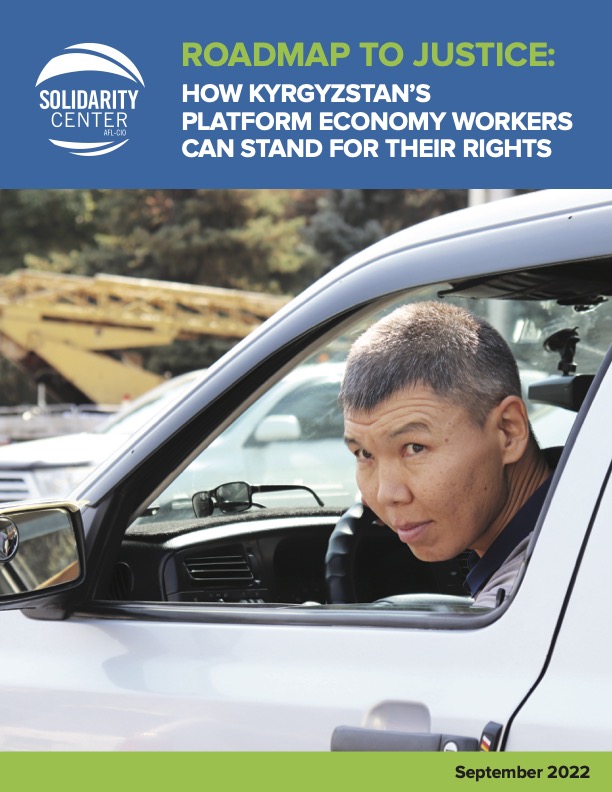
Roadmap To Justice: How Kyrgyzstan’s Platform Economy Workers Can Stand For Their Rights (2022)
The digital platform share in the economy in Kyrgyzstan is growing, and with that growth, an increasing number of people are working through these platforms. Due to its growth, the vulnerability of workers in this sector has also become more apparent, especially for...
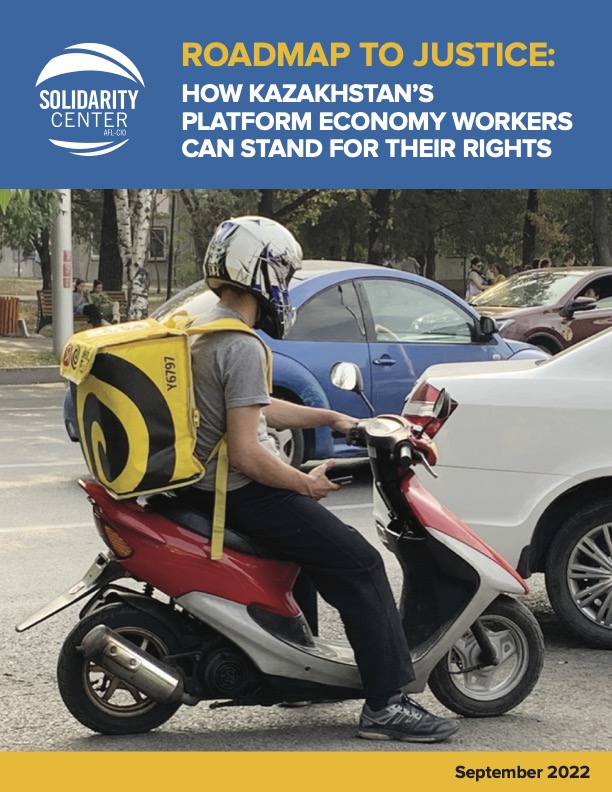
Roadmap To Justice: How Kazakhstan’s Platform Economy Workers Can Stand For Their Rights (2022)
Kazakhstan has the most developed digital market in the region, and digital platform companies operate in Kazakhstan’s major cities. With the sector’s growth, the vulnerability of workers in this segment has also become more apparent, especially for marginalized...
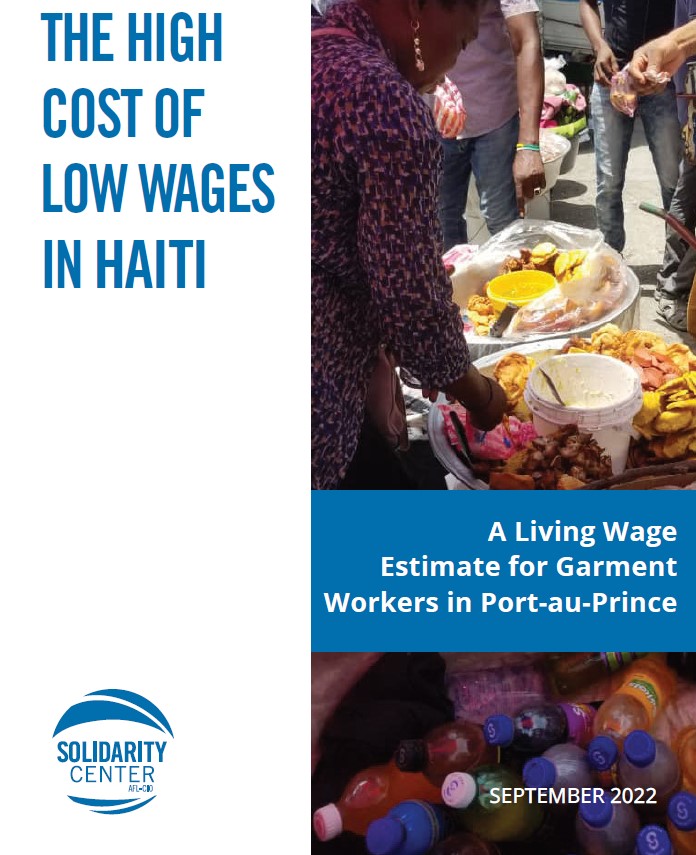
THE HIGH COST OF LOW WAGES IN HAITI (2022)
Haitian garment workers face increasing difficulty in covering basic expenditures as prices soar while wages hover far below the cost of living. Download in English and Haitian Creole.
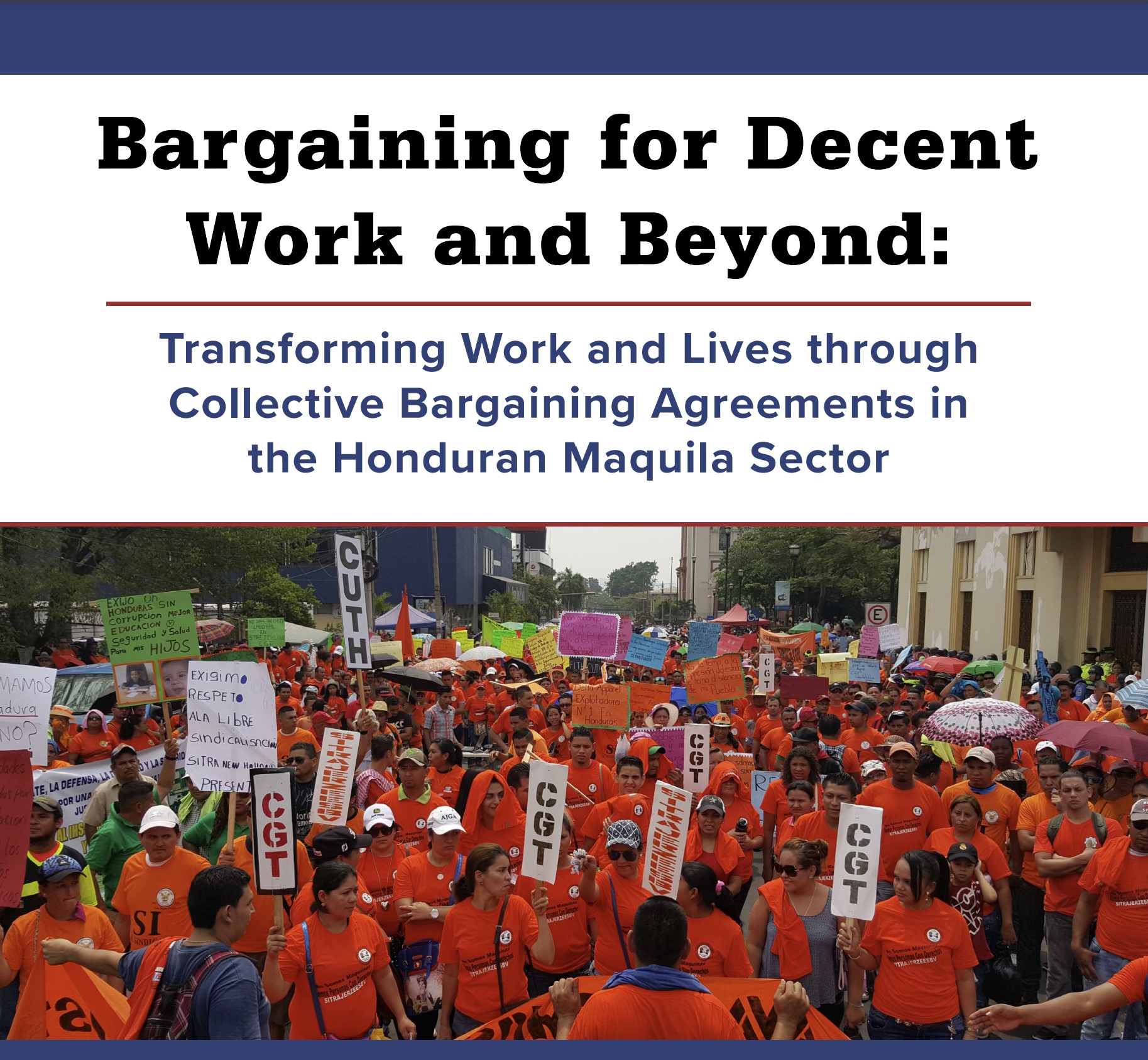
Bargaining for Decent Work and Beyond: Transforming Work and Lives Through Collective Bargaining Agreements in the Honduran Maquila Sector (2022)
Unions in the Honduran maquila sector bargain to improve work conditions and address violence at work, and so provide options for those who may migrate to seek jobs, a Solidarity Center report finds. Download in English and Spanish.
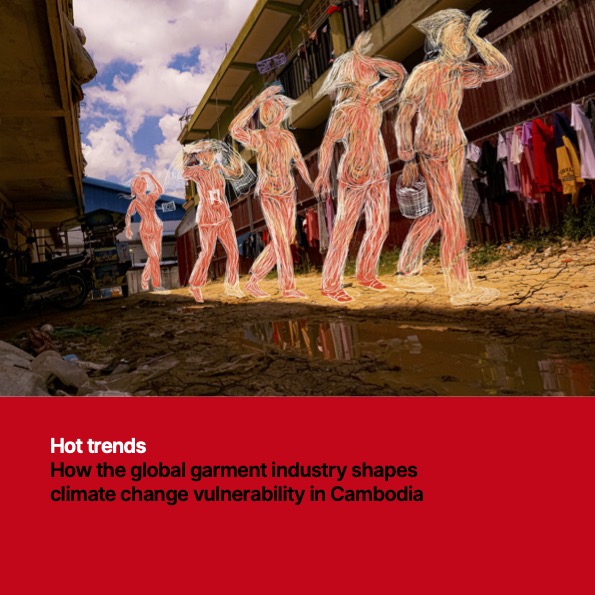
Hot trends: How the global garment industry shapes climate change vulnerability in Cambodia (2022)
In response to mounting public pressure, companies have moved rapidly to launch media campaigns highlighting their commitment to a green future. The global garment industry is no different. Behind much of this “greenwashing” remains the reality that the garment supply...
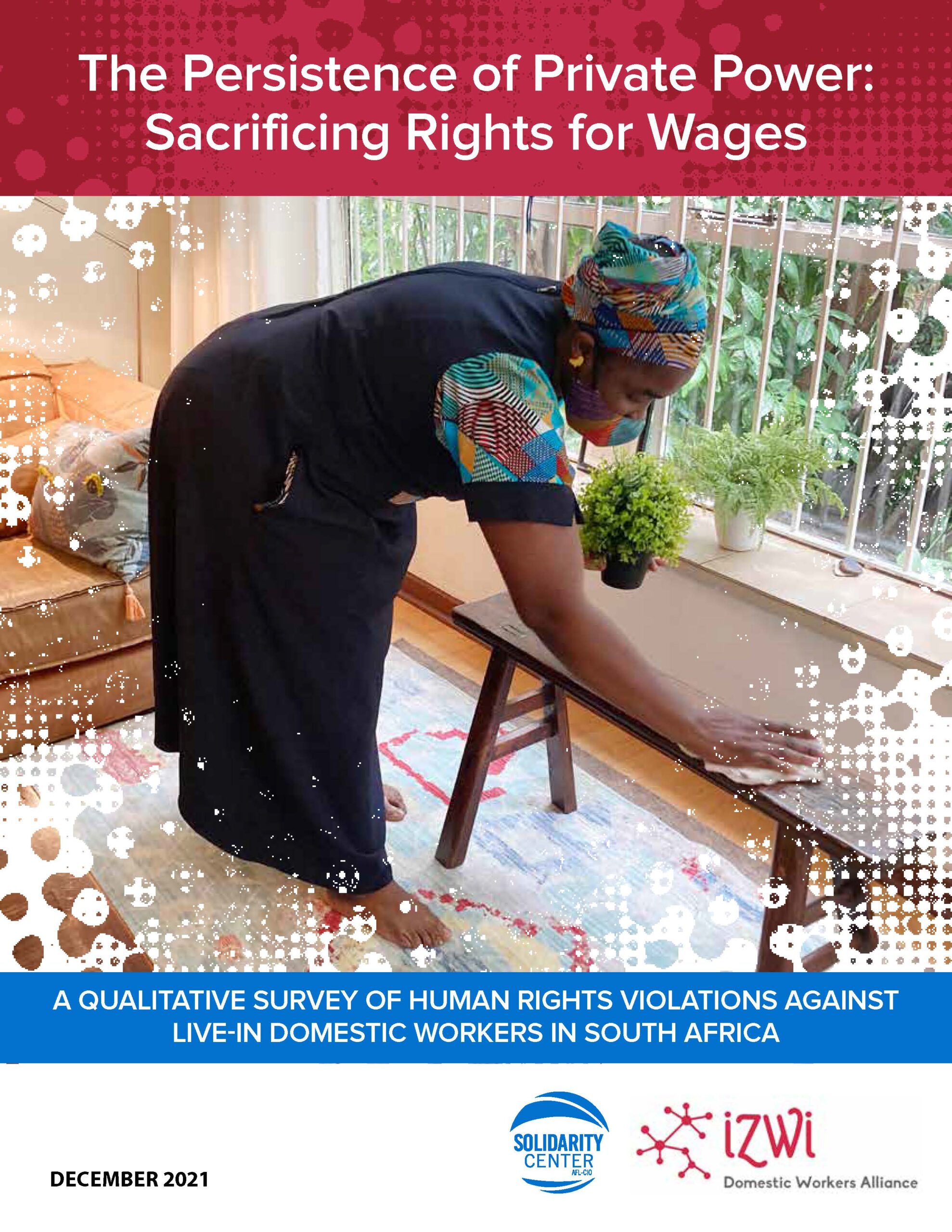
The Persistence of Private Power: Sacrificing Rights for Wages (South Africa)
"The Persistence of Private Power: Sacrificing Rights for Wages," a qualitative survey of human rights violations against live-in domestic workers in South Africa, is co-published by IZWI Domestic Workers Alliance—a network of domestic workers in Johannesburg that...

